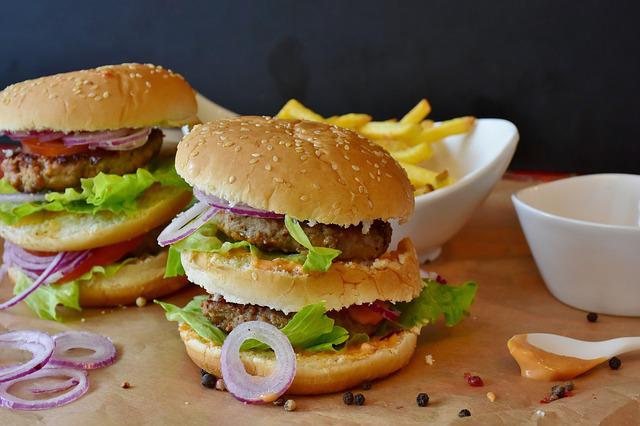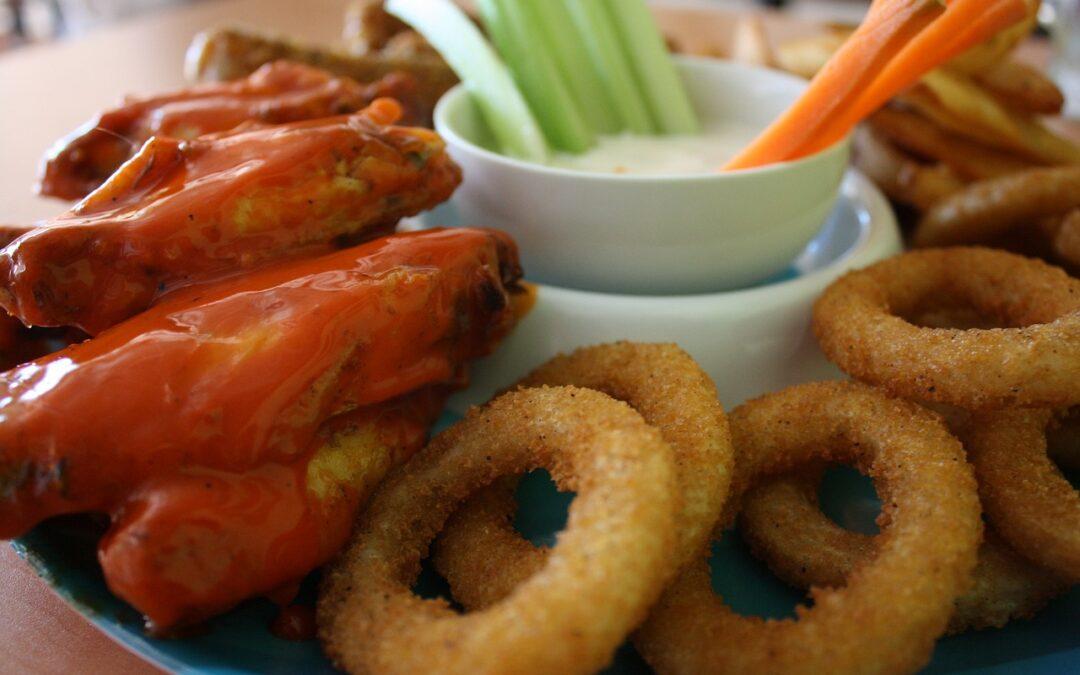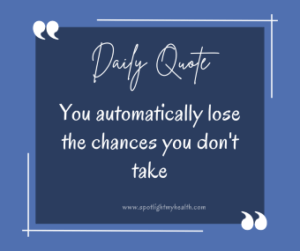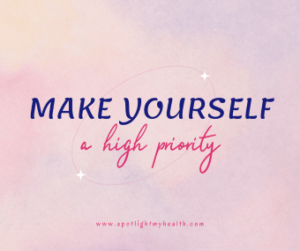What are Food Triggers?
Triggers for overeating are certain moments or actions that trigger eating more than needed or wanted. These can be different for everyone, but a trigger is anything that will cause you to eat what you don’t want to eat. Or these triggers can also cause you to “binge” eat or over eat.
Triggers can be anything from a certain smell to an emotion you are feeling at that point in time. You may not even be aware of it. But the trigger generally activates memories or feelings that you had in the past that negatively impacted you.
Can Food Itself Be a Trigger?
The simple answer is yes. There are certain foods, that when we come across them, will trigger wanting more of the same food. Or that food may trigger wanting another food that gets eaten with the first food.
We all have certain foods that we like so much that we cannot manage to eat them in proper portions. These foods are some of your “triggers for overeating”. Those specific foods provide so much pleasure that they usually “trigger” you to eat too much and too quickly. These foods can also set off a “binge” which then causes a step backwards in dieting. This happens to many of us.
Trigger foods can be many different types of foods as we each have our own triggers.
For instance, chips. Do you eat them alone or do you just have to have dip to go with them? Or a sandwich. I always want something else with a sandwich like chips or french fries. Basically, a trigger food can be anything that triggers the feeling of needing or craving more of a specific food that once you begin to eat you can’t stop.
Foods are not the only trigger we may have that gives us the urgency to eat. For example, our senses are a big trigger. Have you ever been driving, and smell french fries? What does that smell cause you to want? Do you then head to McDonalds or Wendy’s or Burger King?
A big trigger for many of us is our emotions. Feelings can bring with them many sensations that can make you feel as if you are experiencing that sensation right at that time; especially if the associated feeling is negativity.
But if you regularly feed your emotions by turning to food it will affect your weight and therefore more feelings will pop up and you will be in a circle of reaction.

How to Identify Your Eating Triggers
To identify triggers that cause you to overeat you must first be aware that this is what is actually happening. You need to become self-aware every single time you want to eat something outside of regular meals and stop yourself. But before you can do that, you need to figure out why you have that trigger and/or what feelings that particular trigger is causing you.
Here are just some of the many things that can trigger a binge eating episode or just eating in general:
Boredom Can Be A Trigger for Overeating
Boredom happens to all of us at one time or another, even for people who aren’t emotional eaters. The obvious solution is to find something else to take the place of the boredom and is ultimately more satisfying than eating.
It may just be a matter of experimenting until you find the things you enjoy doing in life that you can do when you feel bored instead of eating.
This may be hard to do, especially if you feel the boredom someplace that you can’t do much about it, like at work, for instance. You first have to carefully examine your boredom and determine its cause. Then come up with a few things you can do when your boredom hits at work. Can you get up and take a short walk around the building or change to doing something else that can help dissipate the boredom while still getting some work done?
Anger
When you become frustrated and angry do you reach for food without thinking about it? Eating your anger away doesn’t really help you to cope with those feelings. It’s much better to deal head on with hurtful or frustrating situations? In the moment, food is only an easy distraction from painful emotions, which makes it a temporary solution.
Anger is bound to return and will probably bring even more negative emotions. And on top of those emotions you can then add the guilt you felt for giving into the food and/or ashamed for overeating.
It’s much better to deal with the source of your anger calmly and directly, if possible. If you can’t do that, then try to release your anger by writing about it in a journal. You might also try to release the anger in a physical way—through exercise, for example. Go for a walk, play with your kids, go to the gym or give that bathroom a good scrub. Figure out ahead of time what you can do to move past your anger rather than using food. Having a plan decided ahead of time is always a good idea.

Stress and Anxiety Can be Trigger for Overeating
Stress and anxiety are common emotional triggers. Consider this: Remember your amount of stress, from a situation, depends on how you view it and how you respond to it. Can you look at some of your stress as motivation for change in your life; and then push yourself to actually make that change? Again, like with other triggers, you need to figure out ahead of time what you can do rather than eat when a trigger hits you.
Tip: Meditation is very good for stress and anxiety.
Other things or emotions that could be triggers for you:
**Letting yourself become too hungry
**Disappointment
**Depression
**Helplessness
**Feeling overweight or unhappy with your figure
**Fear
**Loneliness
**Alcohol/Drugs
Non-Emotional Triggers
Don’t forget that there may be non-emotional type triggers for you also. Some of those triggers could be off limit foods, work and the TV or going someplace like a movie theater.
Work – Friday donuts. I once worked at a place where we took turns bringing in donuts for everyone on Friday morning. After moving on from that job, it took me months to feel free of the feeling of wanting donuts every Friday morning.
No Foods Are Off Limits
Do you label any foods off limits? This is what we tend to do with our trigger foods. You know what happens when we do this? Those foods automatically become more irresisitable and there is a good chance you’ll become more obsessed with those foods.
Do not blacklist your trigger foods. Instead remember that a healthy and happy lifestyle involves balance. Treat yourself and savor your food with zero regrets. Then return to your commitment to living a healthy lifestyle, free of guilt and full of motivation.
Don’t forget that perfection is not required to lose weight or live a healthier lifestyle. Use the 80/20 rule of being good 80% of the time. The other 20% of time allows you to occasionally “fall off the wagon.” This can go a long way in preventing overeating or a downright uncontrollable binge. Work this plan to your advantage.

Ways To Break Free From Your Triggers
*Don’t Stock Your Trigger Foods In Your Home
When you keep a trigger food around, you are creating temptation for yourself. Why punish yourself that way. Instead, recognize the foods that trigger overeating or a binge and stop stocking them in your home and office.
Be honest with yourself. For instance, I love breads of all types, especially bakery type breads. So, in order not to eat it, I keep only low carb bread and tortillas in my home.
I can still have a favorite sandwich, but this makes me careful of the type of bread I use. I’ve decided I’d rather be healthy so I strive to create an environment that makes living a healthy lifestyle easier for me.
Stay Away From Alcohol and Drugs
I’ve put this in this post for one reason. I’m like a lot of others; I like my occasional cocktail or glass of wine. But you know what it does to me? After a glass or two, I basically can say “oh the hell with it, I’m eating what I damn well please,” and I do.
Is it a trigger or not? Maybe, because it does lower my resolve, so I treat alcohol like a trigger and either stay away from it or only allow myself one drink.
Now let’s look at the steps it takes to turn away from your triggers, so they no longer own you. Try and remember to be kind to yourself instead of upset with the way certain things make you feel or cause you to overeat on occasion.
Remember “consistency over perfection”.
**Be Observant and Aware
You may not even realize your triggers for overeating at first, until after you are finished eating what you had already decided you didn’t want to eat. It may take some time, so just be mindful of when you are wanting to eat something you’d rather not and then stop and go to the next step.

**Explore the Trigger
If your trigger is emotional, try and figure out why, so that you can move forward. Don’t worry too much if you don’t find your answer the first time around. It may take several tries before you can pinpoint why something is a trigger for you.
Try writing in a journal. Use the journal for notes on questions like the following to help you figure out why you have a trigger. How are you feeling at this moment in time? What is it you want to eat? How long were you able to fight the temptation?
Write down anything that you think might help. By doing this, you may eventually see a pattern.
If you do this every time, you become aware of a trigger, you will get closer to understanding why, so then you can move forward.
**Stop The Pattern By Responding To a Trigger, Not Reacting
Stopping a pattern of behavior is one of the hardest things to do. That’s why exploring a trigger is important. You can kinda do both steps at the same time.
Responding means you are taking the time to think and act logically along with the awareness of how your trigger makes you feel.
Figuring out the why of a trigger and stopping it will also cut off some of your pain and you will understand yourself better.
** Heal The Trigger for Overeatng
Healing a trigger is not necessarily removing the feelings that it causes. It means no longer having the same reaction to a trigger after this process.
See a professional for help if the pain from the trigger is more than you can handle. Or you just can’t figure out what’s behind the triggers on your own. It’s part of the process so don’t feel bad about consulting with a professional. It’s not unusual to need help getting over your triggers.

Final Thoughts
Food can be used to deal with any number of or type of emotion that comes our way. And if you are mainly an emotional overeater, even positive situations can bring on an onslaught of emotions that lead to an all-out binge.
Humans tend to bring food into all kinds of situations from celebrations to sporting events to funerals. This has made it difficult to separate food from feelings.
And if these things contribute to chronic overeating that’s when it’s time to change how you look at food. Figure out the “why” of your triggers and overeating and you’ll be able to move on from those triggers.
Take Care
Cher
Relevant Reading










